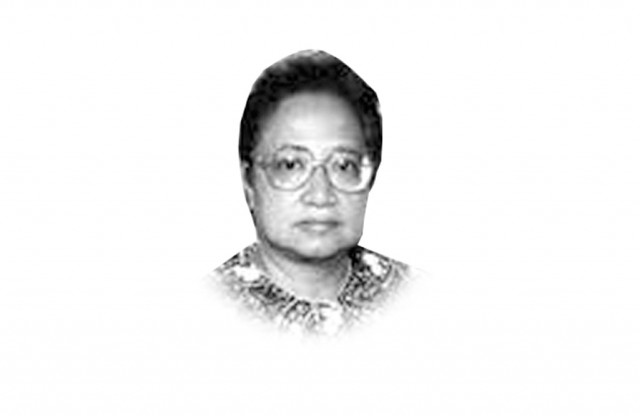Turf wars
Everyone knows the culprits and can identify them in private and off the record, but no one dares stand witness.

Turf wars
The system was so paralysed that honest politicians became an endangered species, silenced at gunpoint or forced to withdraw from politics altogether. It became impossible for the out-financed and infiltrated local authorities to deal with the anarchic situation and it took years of federal action to be rid of the menace. Except now, the gangster mafia in the US has been replaced with permitted as well as under-the-table corporate-money buying influence and political candidates.
The turf wars of Karachi have been brazen for several decades: Everyone knows the culprits and can identify them in private and off the record, but those who value their lives dare not stand witness. There are other differences here that make our situation seem more hopeless. America never had to put up with a standing hegemonic threat railed against it as most south countries have to, Pakistan more than most. It didn’t have the World Bank, the IMF and other institutions, essentially creatures of the US, hijack and manipulate the international financial system as well as country systems, dictate trade and export-orientation and imposed unconstitutional rules and policies, so that no matter how many times we paid off real debts, we remained in even deeper debt, hunger and poverty.
Even so, a semblance of internal stability and conditions for reasonable survival could have arisen here, if a sense of allegiance to the common good viewed as an inherent political advantage had developed even among the self-appointed. The majority of US citizens may be so brainwashed by official propaganda and corporate advertising that they firmly believe that they are the master race and can turn a blind eye to the havoc their government wreaks on the outside world.
The news tells us how many people got killed. But, as one doctor pointed out, those taken to hospital, who died en route or soon after, are not counted. Other news we don’t get is how many didn’t get to eat the day of an all-out strike. When shops are fearfully shut down; when supply trucks stay off the roads and people without electric pumps to raise water, relying on donkey-carts and tankers selling house-to-house, have to do without cooking and washing water. Owning refrigerators no longer means stocking up ahead unless one owns a heavy-duty generator. Daily electricity outages for 8-18 hours has made that impossible. Families dependent on daily-wage breadwinners eat only as adequately as the day’s earnings — or lack of it — allow.
The political parties should know, but do they, about citizens who live day-to-day? About half of Karachi’s population of some 18 million are migrants from rural areas and other provinces. That includes the inhabitants of the 1,000-odd small villages that Karachi swallowed up in the process of unregulated, corrupt expansion.
The basically unaltered feudal and patronage system grafted onto ‘modern’ government with increasingly badly educated and unfit recruits who effectively silence the meritocrats has, over time, spawned powerful hybrid offshoots, such as urban and uniformed feudals. Indeed, too much land and/or too much easy or ill-gotten money has reinforced the belief in dynastic, unquestioned leadership as a birthright.
The rural slave mentality rooted in feudal oppression that has filtered into urban areas also partly explains why hapless ordinary citizens invariably wait for subsequent governments to deliver on tall promises not intended to be kept — instead of making their own comprehensive constitutional checklist of expectations and duties of government towards all citizens, irrespective of party affiliation if any.
Published in The Express Tribune, July 12th, 2011.














COMMENTS
Comments are moderated and generally will be posted if they are on-topic and not abusive.
For more information, please see our Comments FAQ